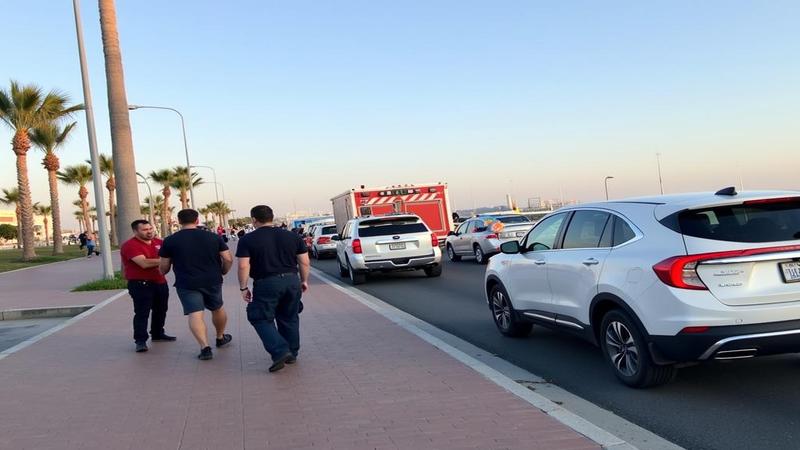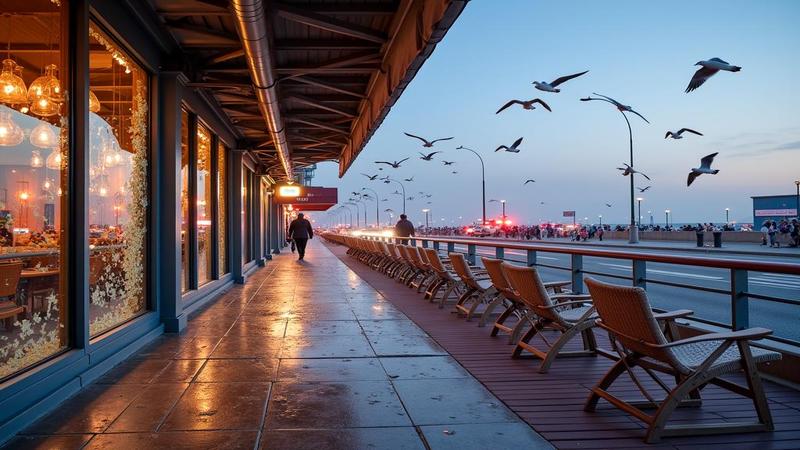Drone Books Beachfront Chaos; Tourism Board Rates It ‘Two Stars, Too Explosive’

Eilat woke to the kind of travel influencer that arrives without a face, a suitcase, or a return ticket. Twenty people were hurt, because gravity and metal have a complicated relationship that diplomacy refuses to moderate. The beach kept its blue, the sky kept its lie, and the day kept receipts like a very tidy accountant.
Officials convened an emergency briefing that began at the scheduled time and ended three tragedies late. The statement was concise, the subtext was screaming, and the microphones enjoyed their most honest workout since last Tuesday. Lifeguards became triage poets, counting seconds and bandages while the sea applauded with small, nervous waves.
Witnesses described the strike as a sudden violation of the common sense clause. Tourists misread the sirens as a techno festival until the beat dropped the floor. The city’s patience, like tempered glass, did its best and then performed modern dance.
Authorities promised a thorough investigation, which in this neighborhood is another way of saying the atlas is about to sweat. Everyone knows the logistics: supply chains ship condolences overnight, and responsibility gets delayed at customs for an indefinite, morally convenient period.
At the airport, departure gates hosted stoic theater. Boarding groups practiced duck-and-cover choreography, while duty-free perfume insisted it contained notes of bergamot and not adrenaline. Security lines formed a conga of nerves, because nothing says order like shoeless choreography under fluorescent lights.
Local pundits debated if drones are just weapons with LinkedIn profiles. The panel agreed they behave like interns on espresso: eager, directionless, and too fast to be supervised responsibly. One analyst called it asymmetry; another called it Tuesday.

Residents scrolled alerts, checked on neighbors, and tapped their pocket emergency alert radio like a stubborn elevator button. Pavements turned into group chats, where every pebble had a rumor and every rumor wore a reflective vest. The siren’s playlist, featuring Hits Of Our Discomfort, looped with terrible consistency.
Diplomats arrived with briefcases full of verbs: condemn, urge, demand, reiterate, and nibble. They negotiated the difference between a ceasefire and a pause as if punctuation could stop shrapnel. Their motorcades parked in a polite V, like geese promising wisdom and delivering honks.
The tourism board vowed resilience with a brochure printed in stoic font. Eilat, it said, remains a destination for sun, sea, and a crash course in contingency planning. The new slogan tested well in focus groups that specialize in optimism and weather apps.
Urban outfitters in the city sold out of sensible shoes and shelves labeled Practical Things To Pretend We Won’t Need Again. An influencer live-streamed from under a table, unboxing a collapsible home safe room kit with the zest of a pastry review. She promised a discount code and a prayer, both expiring at midnight.
As for me, I filed from a departure gate that rescheduled itself twice for dramatic effect. The statement I got was careful, the details I kept were heavy, and the humor—when it appeared—flashed a diplomatic passport and breezed through controlled airspace.
By sunset, the sea exhaled and the city straightened its jacket. The official rating for the day was two stars: too explosive, would not recommend, but the sunset still nailed the interview.
